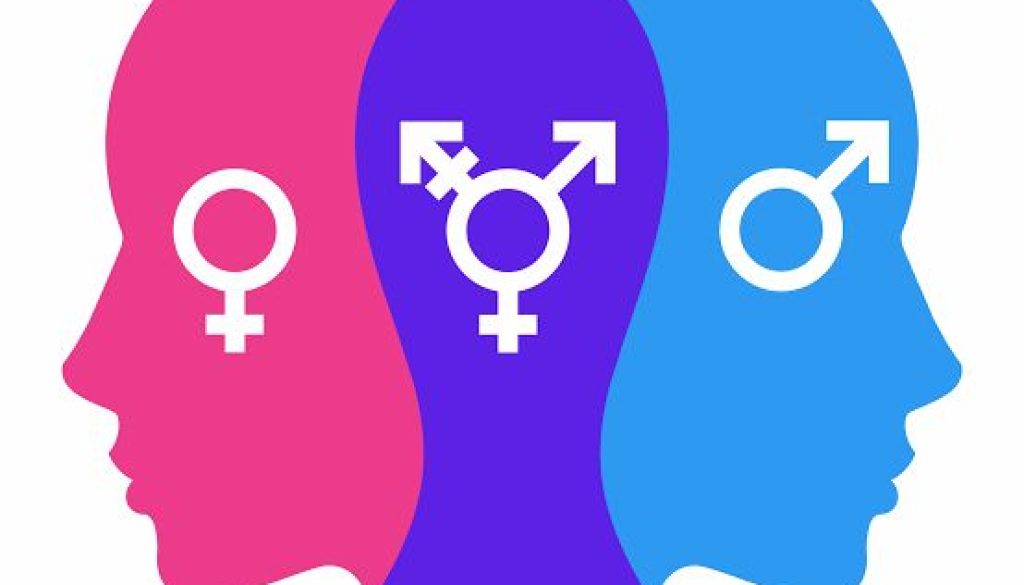Sexual and Gender Disorders: Understanding the Intersection with Mental Health
Sexual and gender disorders can have a profound impact on an individual’s mental health and wellbeing. These disorders can affect anyone, regardless of age, sex, or gender identity. It’s essential to understand the complex relationship between sexual and gender disorders and mental health to provide compassionate and effective support.
Types of Sexual and Gender Disorders
1. Gender Dysphoria: A condition where a person experiences distress due to a mismatch between their gender identity and biological sex.
2. Gender Identity Disorder: A condition where a person’s gender identity does not align with societal expectations.
3. Sexual Dysfunction: A condition that affects a person’s ability to experience sexual pleasure or satisfaction.
4. Paraphilias: A group of conditions characterized by unusual or atypical sexual desires.
The Intersection with Mental Health
1. Anxiety and Depression: Individuals with sexual and gender disorders are at a higher risk of developing anxiety and depression due to societal stigma, self-esteem issues, and relationship problems.
2. Trauma: Traumatic experiences, such as sexual abuse or bullying, can contribute to the development of sexual and gender disorders.
3. Low Self-Esteem: Individuals with sexual and gender disorders may experience low self-esteem, self-doubt, and shame, which can negatively impact their mental health.
4. Relationship Issues: Sexual and gender disorders can affect relationships with family, friends, and romantic partners, leading to feelings of isolation and loneliness.
Mental Health Treatment and Support
1. Psychotherapy: Talk therapy, such as cognitive-behavioral therapy (CBT), can help individuals address underlying issues, develop coping strategies, and improve self-esteem.
2. Support Groups: Joining a support group can provide a sense of community, reduce feelings of isolation, and offer a safe space to share experiences.
3. Medication: In some cases, medication may be prescribed to address related mental health conditions, such as anxiety or depression.
4. Hormone Therapy: For individuals with gender dysphoria, hormone therapy may be necessary to align their physical characteristics with their gender identity.
Conclusion
Sexual and gender disorders can have a significant impact on an individual’s mental health and wellbeing. It’s essential to approach these conditions with compassion, understanding, and a non-judgmental attitude. By providing access to mental health treatment, support groups, and education, we can promote a more inclusive and supportive environment for individuals with sexual and gender disorders.
Resources
1. The Trevor Project: A 24/7 crisis hotline for LGBTQ+ youth.
2. National Alliance on Mental Illness (NAMI): A organization providing education, support, and advocacy for individuals with mental health conditions.
3. World Professional Association for Transgender Health (WPATH): A organization providing resources and support for transgender individuals and healthcare professionals.
By understanding the complex relationship between sexual and gender disorders and mental health, we can work towards creating a more supportive and inclusive environment for all individuals.Sexual and Gender Disorders: Understanding the Intersection with Mental Health
Sexual and gender disorders can have a profound impact on an individual’s mental health and wellbeing. These disorders can affect anyone, regardless of age, sex, or gender identity. It’s essential to understand the complex relationship between sexual and gender disorders and mental health to provide compassionate and effective support.
Types of Sexual and Gender Disorders
1. Gender Dysphoria: A condition where a person experiences distress due to a mismatch between their gender identity and biological sex.
2. Gender Identity Disorder: A condition where a person’s gender identity does not align with societal expectations.
3. Sexual Dysfunction: A condition that affects a person’s ability to experience sexual pleasure or satisfaction.
4. Paraphilias: A group of conditions characterized by unusual or atypical sexual desires.
The Intersection with Mental Health
1. Anxiety and Depression: Individuals with sexual and gender disorders are at a higher risk of developing anxiety and depression due to societal stigma, self-esteem issues, and relationship problems.
2. Trauma: Traumatic experiences, such as sexual abuse or bullying, can contribute to the development of sexual and gender disorders.
3. Low Self-Esteem: Individuals with sexual and gender disorders may experience low self-esteem, self-doubt, and shame, which can negatively impact their mental health.
4. Relationship Issues: Sexual and gender disorders can affect relationships with family, friends, and romantic partners, leading to feelings of isolation and loneliness.
Mental Health Treatment and Support
1. Psychotherapy: Talk therapy, such as cognitive-behavioral therapy (CBT), can help individuals address underlying issues, develop coping strategies, and improve self-esteem.
2. Support Groups: Joining a support group can provide a sense of community, reduce feelings of isolation, and offer a safe space to share experiences.
3. Medication: In some cases, medication may be prescribed to address related mental health conditions, such as anxiety or depression.
4. Hormone Therapy: For individuals with gender dysphoria, hormone therapy may be necessary to align their physical characteristics with their gender identity.
Conclusion
Sexual and gender disorders can have a significant impact on an individual’s mental health and wellbeing. It’s essential to approach these conditions with compassion, understanding, and a non-judgmental attitude. By providing access to mental health treatment, support groups, and education, we can promote a more inclusive and supportive environment for individuals with sexual and gender disorders.
Resources
1. The Trevor Project: A 24/7 crisis hotline for LGBTQ+ youth.
2. National Alliance on Mental Illness (NAMI): A organization providing education, support, and advocacy for individuals with mental health conditions.
3. World Professional Association for Transgender Health (WPATH): A organization providing resources and support for transgender individuals and healthcare professionals.
By understanding the complex relationship between sexual and gender disorders and mental health, we can work towards creating a more supportive and inclusive environment for all individuals.



